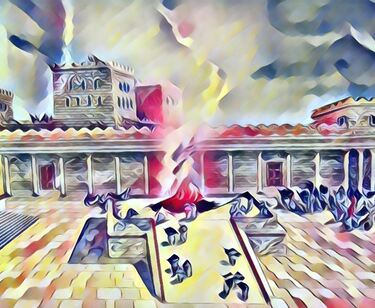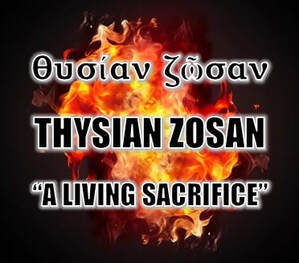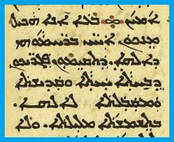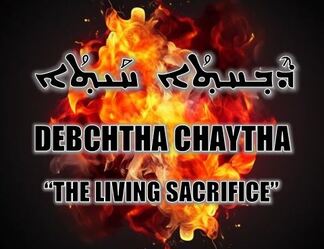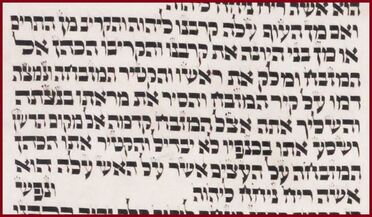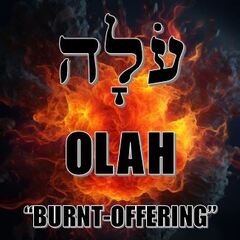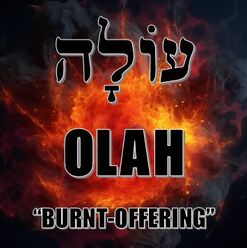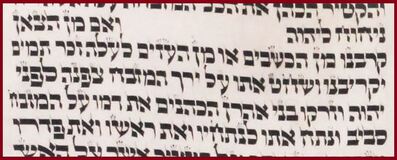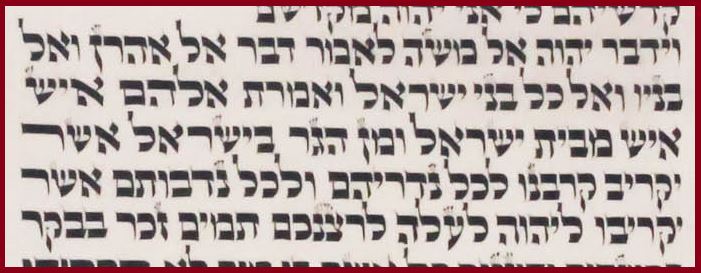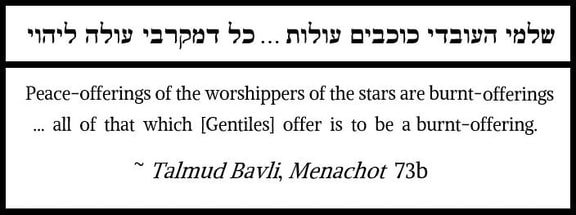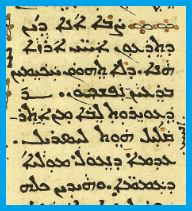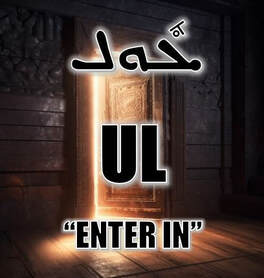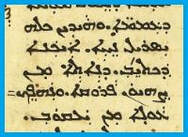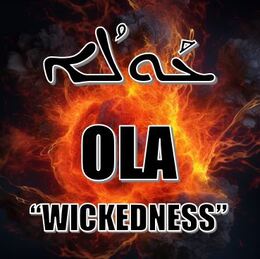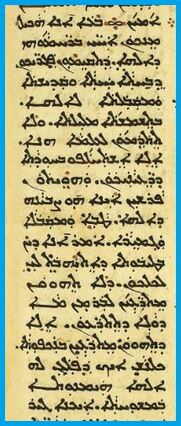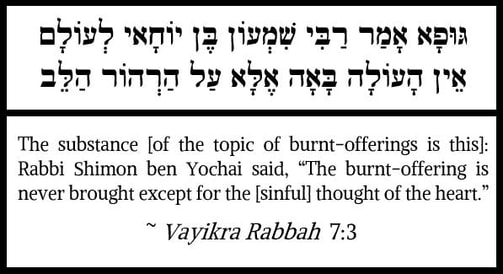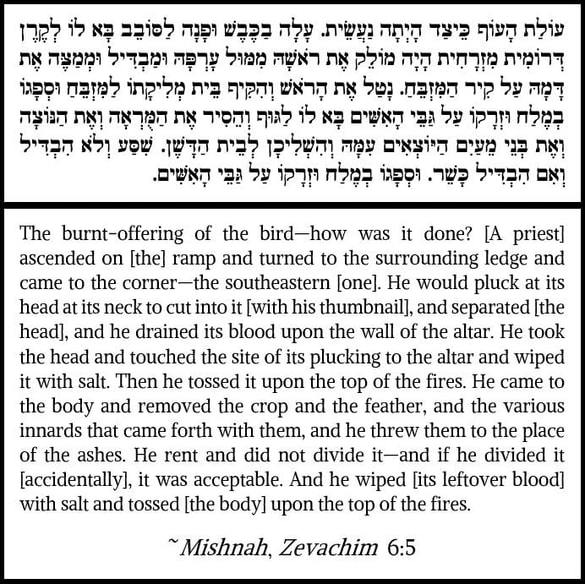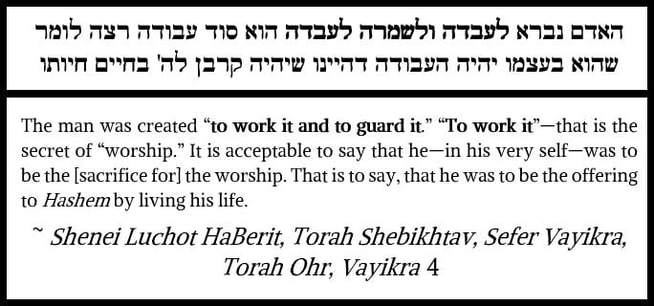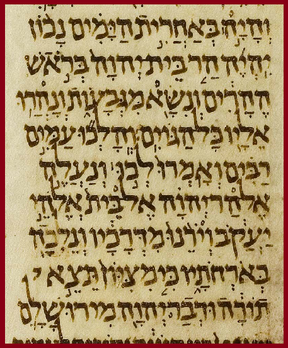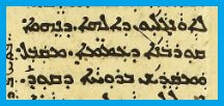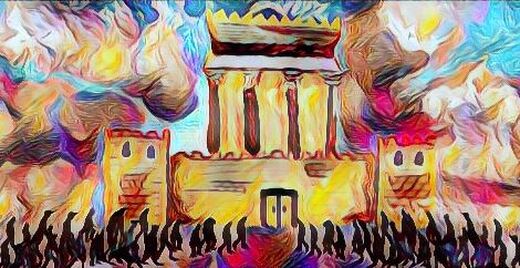THE LIVING SACRIFICE
by Jeremy Chance Springfield
3/1/2024
The believer’s life is one of devotion to the Most High. Our thoughts, words, and deeds are all within the framework of His reality. We cannot escape this truth. As His people, we exist with an expectation of knowing spiritual intimacy with our Maker.
How that cherished relationship works is, in many ways, up to us. We must strive for making the richness of that Divine proximity a reality by daily committing to living in a holy manner—that is, in whatever way best nourishes that connection to the Holy One.
Scripture speaks of this lofty pursuit in many ways. Perhaps the most graphic imagery its uses is when the first-century Pharisee—Paul—entreats his newly-faithful Gentile readers to conduct their spiritual journey as if they were “a living sacrifice,” as seen in Romans 12:1.
How that cherished relationship works is, in many ways, up to us. We must strive for making the richness of that Divine proximity a reality by daily committing to living in a holy manner—that is, in whatever way best nourishes that connection to the Holy One.
Scripture speaks of this lofty pursuit in many ways. Perhaps the most graphic imagery its uses is when the first-century Pharisee—Paul—entreats his newly-faithful Gentile readers to conduct their spiritual journey as if they were “a living sacrifice,” as seen in Romans 12:1.
This portrayal is evocative. It is easy to picture in this a moving scene of a believer going through life, sacrificing daily to remain in a proper spiritual perspective. The traditional interpretation of the phrase a living sacrifice appears at first to be in distinction to the types of sacrifices commanded to be offered in the Torah—slaughtered and destroyed in the act of worship.
The typical understanding of the phrase, then, is that rather than offering a sacrifice that dies, we should live as a sacrifice. That is the traditional notion of a THYSIAN ZOSAN “a living sacrifice,” as the popular Greek texts read.
Upon initial consideration, this concept seems absolutely logical. With but a little more deliberation, however, we can see that there is a better idea existing behind it. We need only ask the question of “What kind of sacrifice is a living sacrifice?” This is a reasonable inquiry, as sacrifices play an important role throughout Scripture for Jew and Gentile alike.
The answer, then, to the question of “what kind of living sacrifice are we to be?” lay in looking at the ancient Peshitta’s Aramaic text of Romans 12:1.
The answer, then, to the question of “what kind of living sacrifice are we to be?” lay in looking at the ancient Peshitta’s Aramaic text of Romans 12:1.
The reading of the Aramaic holds a subtle but key difference that helps to clarify what Paul was really suggesting. Notice that rather than reading “a living sacrifice,” like the traditional Greek texts all contain, the Aramaic possesses the unique reading of DEBCHTHA CHAYTHA “the living sacrifice.”
Both terms in the Aramaic phrase are in the emphatic form, meaning they are to be read as intending a very specific type of sacrifice. The question, then, is what is meant by “the living sacrifice?” This phrase is never explicitly used in the Hebrew Scriptures, and neither does it appear anywhere else in the New Testament.
Thankfully, the Scriptures do make a relevant distinction among the sacrifices that is not typically highlighted, but truly helps to clarify what Paul was speaking about: only one type of animal is actually taken to the altar while still alive—the bird!
Thankfully, the Scriptures do make a relevant distinction among the sacrifices that is not typically highlighted, but truly helps to clarify what Paul was speaking about: only one type of animal is actually taken to the altar while still alive—the bird!
This is recorded in Leviticus 1:14-17.
14 And if the burnt-offering of his offering to YHWH is from the fowl, then he shall bring near for his offering from the turtledoves or from the sons of the dove.
17 and he shall rend it with its wings—not dividing. And the priest shall burn it at the altar, upon the wood which is upon the fire. It is a burnt-offering; a fire-offering; a sweet scent to YHWH.
The bird is brought up atop the altar to be sacrificed there as a "burnt-offering." This is the word OLAH in Hebrew.
The term actually has the concept of something “going up,” so that it literally could be translated as an “ascension-offering.” This points to the animal being immolated in the burning, and spiritually, it speaks to what occurs in the status of the one who brings the offering: they ascend in merit before the Creator.
One will also encounter it spelled in the Hebrew Scriptures more fully, with the addition of the letter Vav, yet still pronounced the same—OLAH.
Before going any further with these details and what this signifies for our topic, it is important to highlight the detail that while this sacrifice happens atop the altar itself, all other animals are to be sacrificed elsewhere.
and also:
10 And if his offering is from the flocks, from the sheep or from the goats—for a burnt-offering, an unblemished male he shall bring near,
These are the only types of animals authorized to be sacrificed to the Creator: cattle, sheep and goats, and certain birds. All were slaughtered and had their blood presented upon the altar, but the cattle, sheep, and goats were all taken to the altar after their slaughtering had occurred. The birds alone were offered up as living sacrifices—the only animals taken alive atop the altar! This is the decree of the Torah.
When the Aramaic of the Peshitta of Romans 12:1 uses the phrase “the living sacrifice,” it can only be referring to the category of birds that the Torah permits to be offered up while alive upon the altar.
When the Aramaic of the Peshitta of Romans 12:1 uses the phrase “the living sacrifice,” it can only be referring to the category of birds that the Torah permits to be offered up while alive upon the altar.
Clarifying the intent of Paul’s phrase serves more than to provide a curious detail. It actually helps us to appreciate further what Paul was saying to the believers in this part of his letter. This is found in the detail from Leviticus 1:14 that the bird brought to the altar is a “burnt-offering.” The Torah designates various offerings for different reasons, and the fact that the bird that solely functions as “the living sacrifice” is also called a “burnt-offering” is totally meaningful.
The reason is found in what the Torah says about who could bring offerings, as recorded in Leviticus 22:17-18.
The reason is found in what the Torah says about who could bring offerings, as recorded in Leviticus 22:17-18.
17 And YHWH spoke to Mosheh, to say,
|
18 “You must speak to Aharon, and to his sons, and to all [the] sons of Yisra’el, and say to them: ‘Every man from the House of Yisra’el, and from the sojourner in Yisra’el, who brings near his offering for all his vows, and for all his voluntary-offerings which he shall bring near to YHWH for a burnt-offering…’”
|
In other passages of the Torah, when it speaks of bringing an offering of any type, it is always clarified to be an Israelite who does so. In this passage, however, we see the clear allowance for "a sojourner," that is, a Gentile, to bring near a very specific offering: a burnt-offering!
The Talmud Bavli, Menachot 73b provides an explanation about this allowance.
The significance of this singular type of offering that Gentiles can bring lay in the Hebrew term behind the English rendering of “burnt-offering”—OLAH “ascension-offering,” as explained previously. This reveals that even Gentiles can rise in spiritual status by bringing an offering which is not otherwise compelled to be brought.
What an incredible mercy has been bestowed for Gentiles to offer sacrifice alongside Israel in true worship of the Most High! This unimaginable allowance of Divine favor could obviously very easily lead an incoming Gentile to boast in their unique right, and that is why nearly the entirety of Romans 11 deals with the situation of spiritual inclusion and the care needed to not let that special right to offer the OLAH be a source of personal glory.
This is especially hinted at in the Aramaic of Paul’s words in Romans 11:25.
What an incredible mercy has been bestowed for Gentiles to offer sacrifice alongside Israel in true worship of the Most High! This unimaginable allowance of Divine favor could obviously very easily lead an incoming Gentile to boast in their unique right, and that is why nearly the entirety of Romans 11 deals with the situation of spiritual inclusion and the care needed to not let that special right to offer the OLAH be a source of personal glory.
This is especially hinted at in the Aramaic of Paul’s words in Romans 11:25.
He cautions his readers to not be wise in their own minds—none should entertain the evil thought in their heart that they are more special than another, for the blindness that had to come was only so that the Gentile could even enter into the commonwealth of Israel. This connection to the OLAH by which the Gentiles can participate in worship is hinted at in Paul’s word-play using the term D’NE’UL “shall enter in,” which is a conjugation of the Aramaic UL “enter in.”
Although hailing from a distinctly different root word, the Aramaic UL is yet spelled identically to the full spelling of OLAH, as Hebrew and Aramaic share the same alphabet. The hint in this is that once the Gentiles have wholly participated in "entering in" / "the burnt-offering" of true worship, then Israel’s blindness will be removed for a magnificent reunion to occur.
Incredibly, Paul seems to double-down on this clever word-play and returns to it in the very next verse of Romans 11:26 by quoting from Isaiah 59:20 in an Aramaic rendering.
Incredibly, Paul seems to double-down on this clever word-play and returns to it in the very next verse of Romans 11:26 by quoting from Isaiah 59:20 in an Aramaic rendering.
Paul’s quote from the prophet uses the Aramaic word OLA “wickedness,” which is from yet another root word, but is spelled almost identically in this case to the Hebrew OLAH.
The hint here is that in due time—when all Gentiles have entered into true worship—then shall OLA “wickedness” be removed from Israel. That is, then shall OLAH “burnt-offering” be removed. In the World to Come, there will be no death, and that means, no sacrifice involving death.
All this returns us to the completion of Paul’s thought about the believer striving to exemplify “the living sacrifice”—the burnt-offering of the bird. The complete thought is depicted in Romans 12:1-3.
All this returns us to the completion of Paul’s thought about the believer striving to exemplify “the living sacrifice”—the burnt-offering of the bird. The complete thought is depicted in Romans 12:1-3.
|
1 I implore from you, my brothers, by the compassions of the Deity, that you position your bodies [as] the living sacrifice, holy and acceptable to the Deity, in a logical ministry.
2 And do not be likened to this world, but instead, you must be changed by the renewal of your mind, and you shall distinguish what is the will of the Deity--[that which is] good, and acceptable, and perfect. 3 Yet, I speak in the goodness that has been given to me, that you do not think beyond what is proper to think, but instead, that you think with modesty—every man as the Deity has distributed to him in a measure of trust. |
Our life as the living sacrifice is one where we are positioned intentionally, expressing a logical ministry. This requires our minds to not be full of selfish thoughts—heeding Paul’s warning from Romans 11:25 to not be boastful. Rather, we must be seeking to align our thoughts of our hearts with the Creator’s will, properly assessing ourselves and the situations of life as all moving towards the fulfillment of His redemptive plan. This is the proper sacrificial lifestyle mindset of a living burnt-offering.
These words of admonishment align astoundingly well with the sentiments contained in the text of Vayikra Rabbah 7:3.
These words of admonishment align astoundingly well with the sentiments contained in the text of Vayikra Rabbah 7:3.
This repeated mention of the "thoughts" and "mind" by Paul in connection to being "the living sacrifice," and its conceptual link to the burnt-offering addressing the situation of the sinful thoughts of our heart is no coincidence. Rather, it speaks directly to the actual manner in which the living sacrifice, that is, the bird, is to be slaughtered atop the altar, the method of which is recorded for us in detail in the text of the Mishnah, Zevachim 6:5.
The sacrifice of the bird directly involved the head of the fowl, that is, the mind, and after that initial focus was dealt with by the priest's actions, then the inner organs were removed and the bird was rent, which addresses the heart of the bird. We can therefore see from this chronicle of how the bird was sacrificed that Paul's words in Romans 11 and 12 about the status of the mind and thoughts of the believer who is to be "the living sacrifice" is unquestionably alluding to the bird offered alive upon the altar in the Temple.
This detail about the nature of the burnt-offering showcases our desire to not be satisfied with the fickle thoughts of our own mind leading us in the chaotic maze of our selfish desires, but rather, to align ourselves throughout our lives with the mind of the Most High, being renewed to be interconnected to His goal to unite all of creation to Him.
This detail about the nature of the burnt-offering showcases our desire to not be satisfied with the fickle thoughts of our own mind leading us in the chaotic maze of our selfish desires, but rather, to align ourselves throughout our lives with the mind of the Most High, being renewed to be interconnected to His goal to unite all of creation to Him.
Our restoration of a sustained, mindfully sacrificial living for the Holy One has the highest of purposes. This is expressed in the text of Shenei Luchot HaBerit when it comments on the deeper meaning of man's placement in Paradise, as originally mentioned in Genesis 2:15.
The original purpose of man was to be in the Presence of the Creator’s most intimate abode—the Garden, and he himself would serve as the living sacrifice rather than animals needing to die in his place.
Once sin entered in, everything changed, and we are still reaping the consequence of that rebellion. When Jew and Gentile alike are reunited in purpose, living for His Kingdom, then the world will be once step closer to its ultimate restoration.
The prophet Isaiah 2:2-3, speaks of that special time of unity.
The prophet Isaiah 2:2-3, speaks of that special time of unity.
|
2 And it shall be in the latter days, the Mountain of the House of YHWH shall be established at the head of the mountains, and shall be over the hills, and unto it shall flow all the Gentiles.
3 And multitudes of peoples shall walk, and say, “Let us walk, and ascend unto the Mountain of YHWH, unto the House of the Deity of Ya’aqov, and He shall instruct us from His ways, and we shall walk in His paths!” For from Tziyon shall go forth the Torah, and the Word of YHWH from Yerushala’im. |
The words of Paul in Romans 12:1-3 are intended to help prepare Gentiles to stand alongside Israel in the latter days that Isaiah’s words speak of. In fact, Paul sums up the goal of his relentless drive to elevate Gentiles later in the book, in Romans 15:16.
Man’s worship cannot be whimsical, but rather, must exhibit a determined commitment to live for our Creator in this life, facing the trials and taking responsibility for our thoughts and actions. Integrity must be shown as we walk through this journey of faith.
The bird of the burnt-offering was brought alive to the altar—a right given to no other living creature—and there the one who offered it up ascended in the spiritual realities that lay behind the sacrifice. We know what it means to be the living sacrifice. May we do so with a lifestyle that honors the One who has elevated us to His altar.
All study contents Copyright Jeremy Chance Springfield, except for graphics and images, which are Copyright their respective creators.
